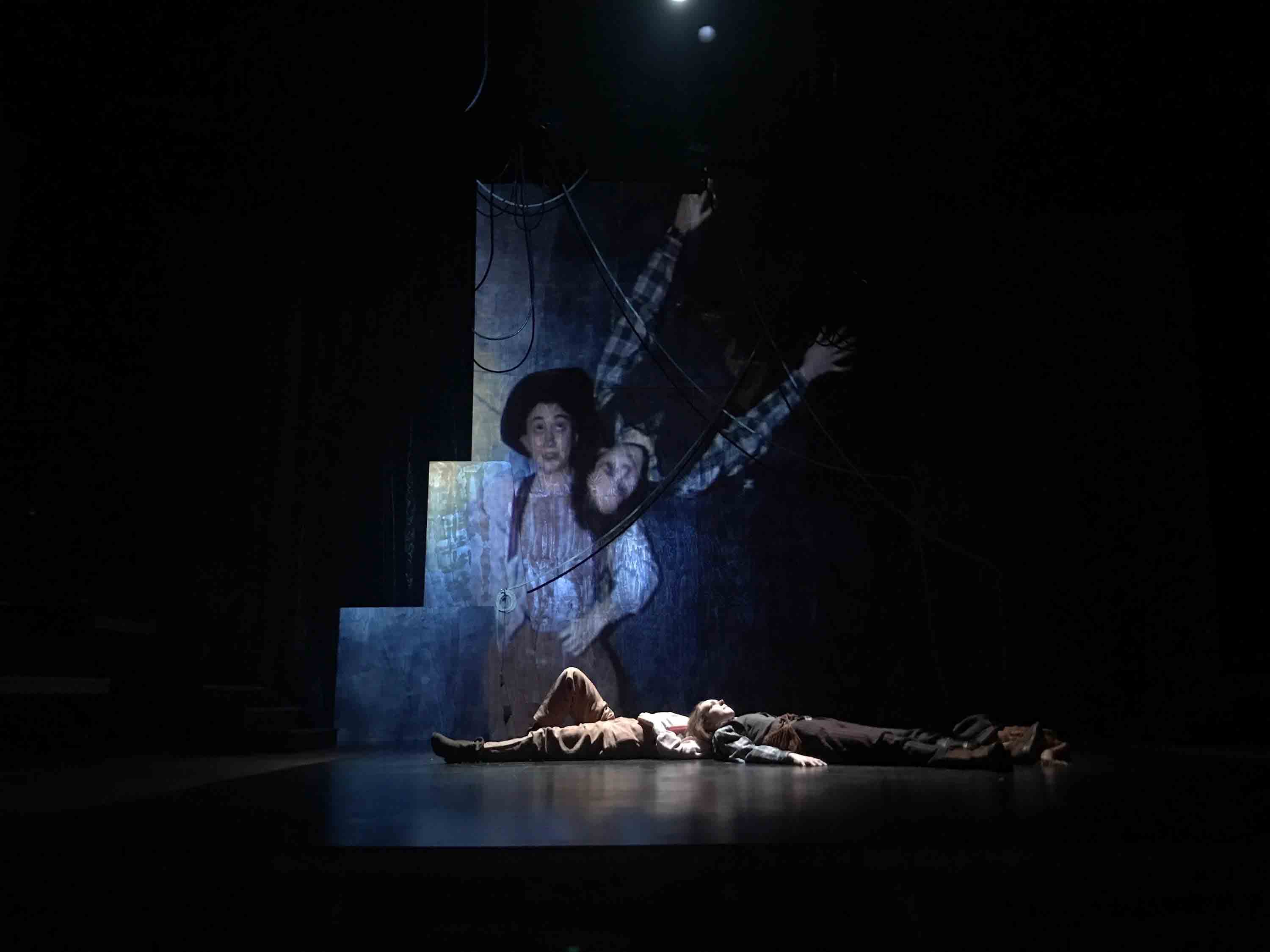
“Men on Boats,” written by Jaclyn Backhaus, is described as a “true(ish)” account of an 1869 expedition to chart the Colorado River. The expedition group is led by Commander Powell, a veteran who lost his arm in the Civil War. If this sounds like the most masculine narrative that has ever been constructed, your intuition is correct. It is absolutely the most masculine narrative I have seen in a substantial amount of time. However, the show is comprised of entirely women and nonbinary actors — a choice that not only upends traditional gender stereotypes in a manner and medium that provokes thought, but makes the show a whole lot of fun to watch.
The plot of the show itself is not particularly compelling, and in some ways, it’s predictable. There is not necessarily a main conflict or contention tying the beginning of the show to the end, but in some ways, that makes the show more indicative of a historical narrative — those on the real Powell expedition probably spent much more time rowing and taking food ration inventory than provoking one another or developing lasting emotional ties. Rowing is exhausting, and emotions take energy. Powell, Rora Brodwin ’18, and Dunn, Alexa Stanger ’21, have a brief power struggle, in which Dunn believes he can lead the expedition more efficiently than Powell, but in a show rooted in expressions of masculinity, that subplot is not a surprising one.
Aside from that, the show primarily alternates between very dynamic and physical rowing scenes — some of which seemed a bit awkward — and scenes of dialogue. What makes the show worthwhile are those scenes of lighthearted conversation and banter between the characters.
These scenes are so much fun to watch solely because of the excellent casting. The cast only amounts to ten — how many men does it take to fill three boats? — and they’ve established a clear onstage relationship and comedic rapport. There was not a joke that was left hanging or half-delivered. Laurence Bashford ’18, who plays Goodman, a Britishman who adventures for sport, has a funny monologue-to-the-fish — which uses some cool tech that I won’t spoil for future audience members. The brotherly duo of Seneca and O.G., played by Allison Chen ’21 and Elka Wade ’21, is so convincing that it’s heartwarming. And Payson Whitwell’s ’20 portrayal of the character Old Shady was just awesome.
What really stole the show, however, was Brodwin’s portrayal of Powell, the Civil War veteran and commander of the expedition. Powell is commanding, suave and poised. Even Brodwin’s physical movements are calculated.
The show also acts as social commentary throughout — in both expressed and underlying fashions. The most expressed ways are found in the dialogue. There are references to the nature of the expedition, and the effects of westward expansion on Native American populations. There’s discussion of power, politics and how documentation muddles our perception of history. Then, there are is social commentary in what isn’t articulated during the show: gender.
One of the most exciting facets of the female or nonbinary casting choice was that of pronoun use. Something about a group of performers willingly adopting pronouns that they may or may not adopt outside of the theatre, and a group of performers who may use a wide array of pronouns adopting the same set, made me giddy inside. This must happen often, especially to gender-nonconforming performers who must adopt a set of pronouns they don’t ascribe to in almost any show, but the fact that “Men on Boats” draws attention to this phenomenon is exciting, and is indicative of something about theatre that makes it worth analyzing sociologically — the nuances and implications of being someone you’re not. In theatre, there’s an active choice and involvement with adopting another person’s story, or gender. In life, the objective is to allow everyone to be the gender they are, without having to worry about the adoption of a gender out of fear or self-preservation. Shows like “Men on Boats” open up these topics for conversation by providing a distinction between acting a gender and being a gender, and how those can cross and intersect.
“Men on Boats” is showing at the University Theatre from Feb. 21–24 at the University Theatre. Shows are at 8 p.m. each night, with a 2 p.m. matinee on Feb. 24.
Rianna Turner | rianna.turner@yale.edu







